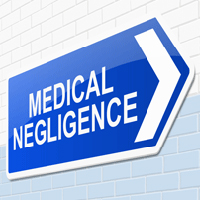Pennsylvania Hospitals: Patients at Risk
November 14, 2018 Medical malpractice is a serious issue and there was a recent study done about medical safety; The results are shocking: 1 out of 3 nurses employed in various Pennsylvania hospitals rated patient safety levels at their workplaces as “unfavorable” – and more than half said they would “definitely not recommend” that others seek medical treatment at their hospital.
Medical malpractice is a serious issue and there was a recent study done about medical safety; The results are shocking: 1 out of 3 nurses employed in various Pennsylvania hospitals rated patient safety levels at their workplaces as “unfavorable” – and more than half said they would “definitely not recommend” that others seek medical treatment at their hospital.
Led by the director of the University of Pennsylvania’s Center for Health Outcomes and Research, the survey not only indicates a lack of competent and safe healthcare options across the state, but should also serve as a serious warning to PA residents (along with individuals traveling to the area for medical care).
More Frightening Findings
Not only did more thousands of nurses say that patient safety in their hospital is at risk, but also that:
- They felt unable to question “authority” figures about concerns;
- Their hospital has inadequate or substandard infection prevention programs in place;
- There is often a loss of critical patient information that occurs during shift changes, and that:
- “Things fall between the cracks” regularly
Limiting the numerous hazards that patients face – such as when a person develops sepsis (a severe and often deadly infection) after having a surgical procedure or is prescribed the wrong medication – is one of the most effective ways that healthcare providers can avoid tragic – and preventable – medical outcomes. Medical errors are one of the leading causes of death in the United States; in fact, some findings suggest that more than 250,000 Americans die from medical mistakes every year.
Factors that Compromise Patient Safety
The study’s researchers identified several factors that contributed to the substandard ratings reported by nursing staff across the state. The researchers noted factors like a lack of managerial support, as well as inadequate staffing levels, limited resources, and the scarcity of training programs. There are several ways that medical facilities can improve in order to better ensure patient safety. Some examples of these well-known precautionary measures include:
- Minimizing dangerous hospital-acquired infections, which include sepsis and central line infections;
- Targeting adverse drug events (including allergic reactions to medications and all other medication-related errors);
- Ensuring that hospital policies are in compliance with well-known – and evidence-based – guidelines (like how to prevent hospital-acquired infections by the Centers for Disease Control and Prevention, or CDC), and:
- Improving communication between care providers (such as specialists and primary care physicians), especially during treatment transitions
Tips to Help Patients Stay Safe
In the perfect world, no one would have to worry about receiving substandard or negligent care when they see a doctor or are treated in a hospital – but with hundreds of thousands of fatalities resulting from medical mistakes every year, patients need to prioritize their own safety. According to the Department of Health and Human Services (HHS), patients can play an integral role in preventing medical errors from happening. Here are some helpful tips from the HHS:
- Provide a complete list of medications – including over-the-counter meds and dietary supplements – that you take to every doctor you have an appointment with;
- Make sure you have the necessary equipment to properly measure medication dosages (if you need help with this, talk to your pharmacist);
- If you are in the hospital, ask every healthcare worker to wash their hands before touching you;
- Before a surgical procedure, discuss the operation with your doctor and surgeon. This helps prevent wrong-site (such as a procedure on the wrong limb) operations from happening, and:
- Ask that a friend, family member or partner join you at your appointment(s)
What if You’re a Victim of Medical Negligence?
It can be hard to tell whether a poor medical outcome is the result of a doctor or nurse’s mistake or if it was simply unavoidable – and that is why it is a good idea to talk to a lawyer. A lawyer can determine if a healthcare provider’s negligent behavior caused injury (or death) to the patient; if it did, filing a medical malpractice claim can help the injured person or grieving family members to cover expenses as well as future losses.
Philadelphia Medical Malpractice Lawyers at Galfand Berger, LLP Representing Injured Individuals Since 1947
If you were a victim of medical negligence, the legal team at Galfand Berger is happy to answer your questions and have one of our Philadelphia medical malpractice lawyers review your case for free. With offices located in Philadelphia, Bethlehem, Lancaster, and Reading, we serve clients throughout Pennsylvania and New Jersey. To schedule a consultation, call us at 800-222-8792 or complete our online contact form.
 Google Screened
Google Screened
